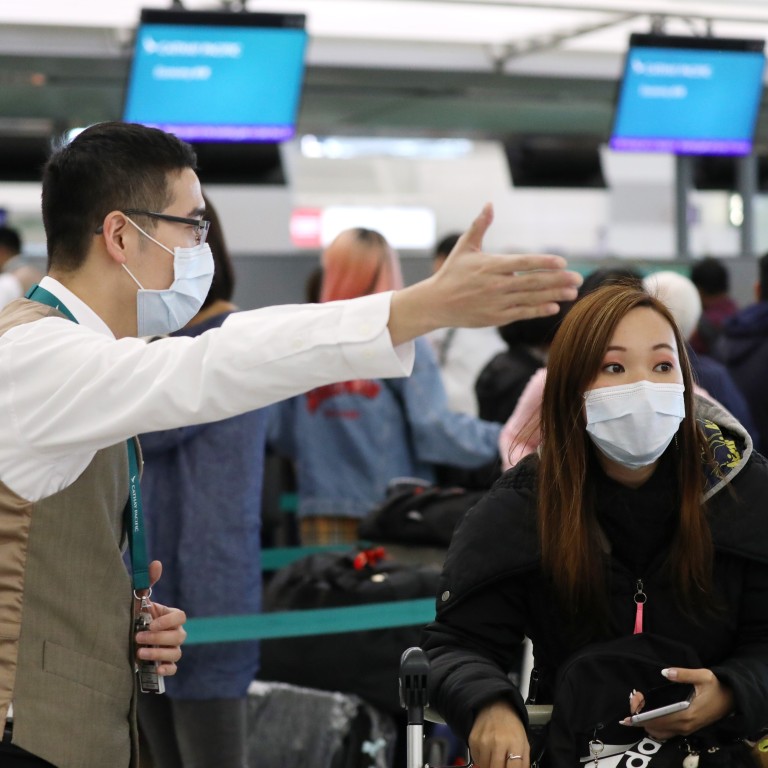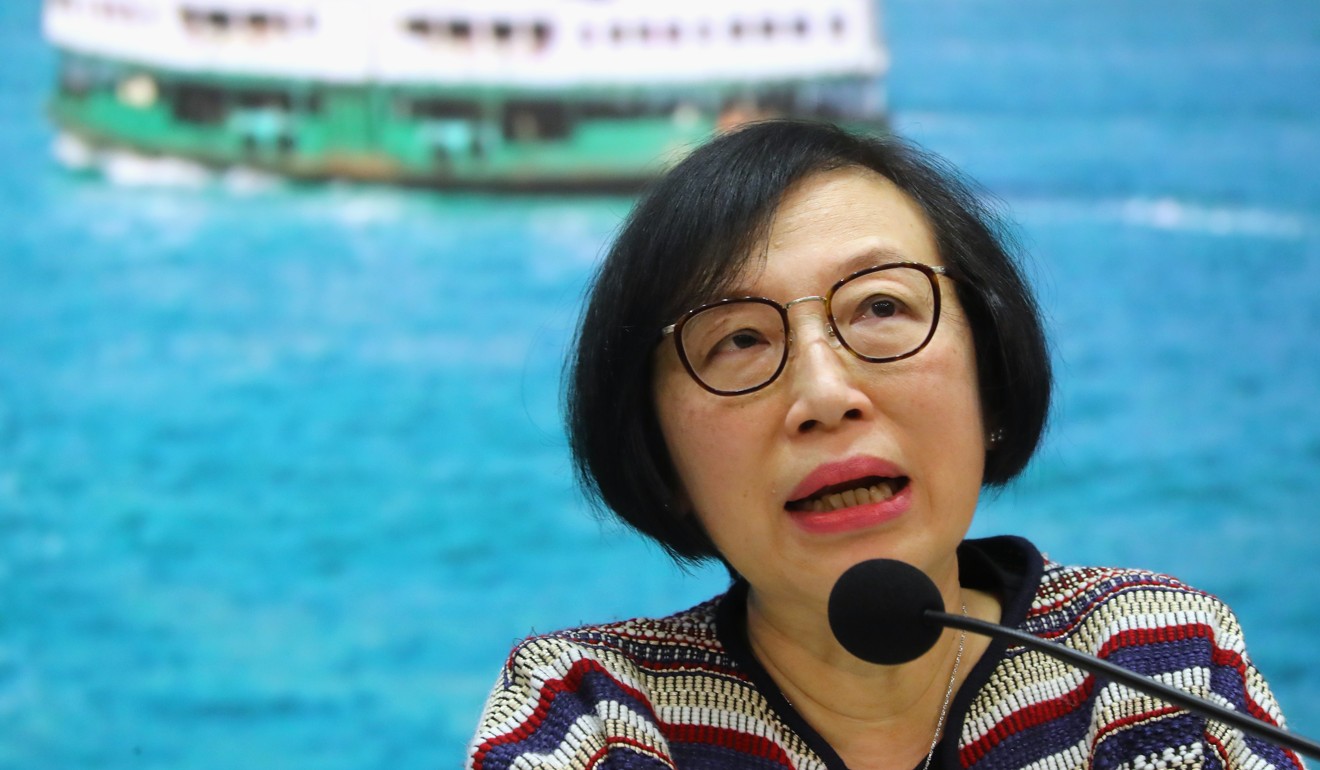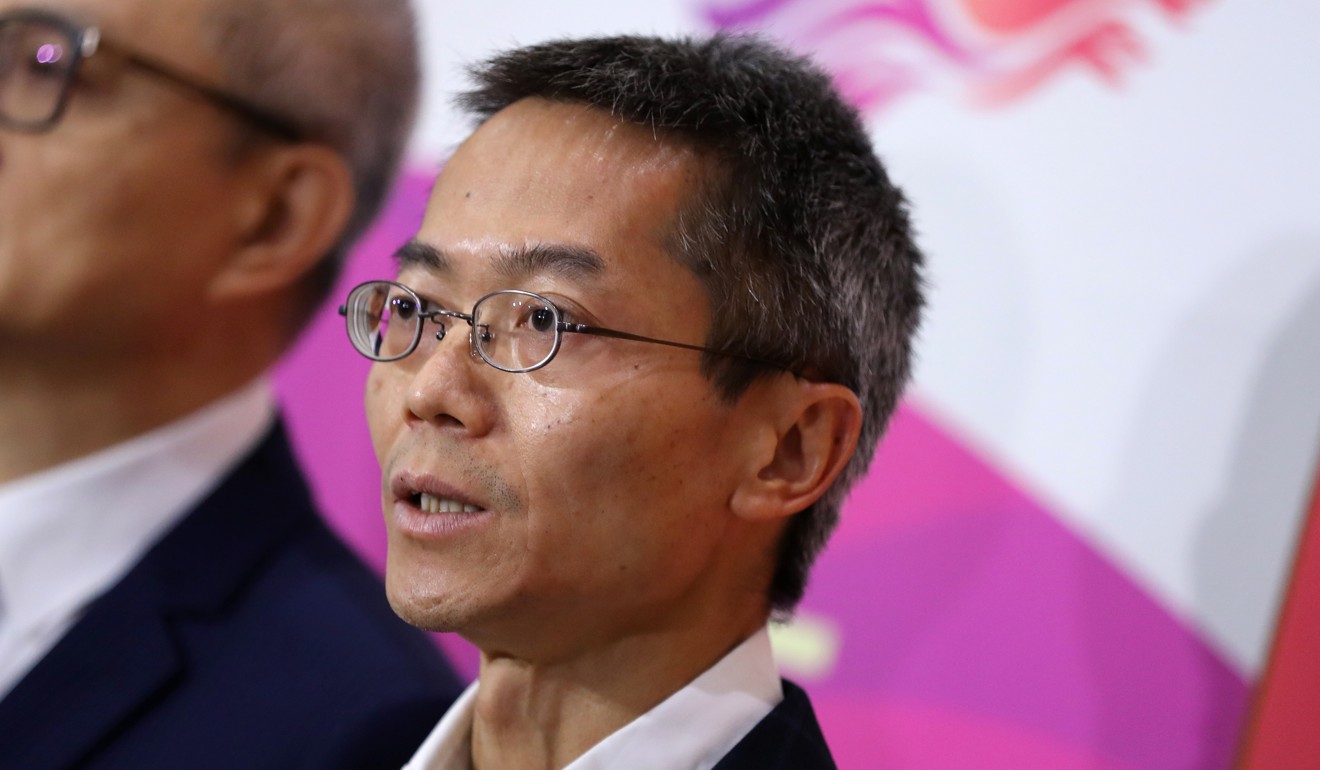
Hong Kong set to change measles vaccine policy so children get second injection at earlier age amid rise in infections
- From next year, children aged 18 months will receive second jab instead of having to wait until they are six years old under existing policy
- Department of Health confirms four more cases of the disease, taking this year’s total to 30
Hong Kong is set to change its vaccination policy for measles, with children receiving a second injection against the contagious disease at a younger age amid a continuous rise in infections.
From next year, children aged 18 months will receive the second jab instead of having to wait until they are six years old under the existing policy.
Secretary for Food and Health Professor Sophia Chan Siu-chee also revealed at the Legislative Council on Wednesday that about 30,000 doses of the vaccine would arrive in Hong Kong next month. The Airport Authority would also step up its vaccination service for airport staff.
Chan’s announcement came as the Department of Health confirmed four more cases of measles, taking this year’s total to 30.

The four cases included two from the airport – a 31-year-old man working at the MTR’s Airport Station, and a 21-year-old woman working at the McCafe in Terminal 1. By Wednesday, a total of 11 cases involved airport and airline personnel.
The two other cases recorded on Wednesday were a 43-year-old man who recently visited Okinawa, and an eight-month-old boy who recently travelled to Bangkok and Hua Hin in Thailand.
He was the third and youngest baby to be infected with measles this year.
Six more Hong Kong residents infected with measles, government says
Legislators and medical experts have recently questioned why the government inoculated children when they were one year old and six, while toddlers in mainland China and countries such as the Philippines received a second shot when they were about two.
Responding to lawmakers’ urgent questions on ways to tackle the outbreak, Chan said the vaccination policy would be changed from next year.
“Experts from the Department of Health are of the view that it is better if the second vaccination can be advanced to 18 months,” she said.
“Our maternal and child health centres have started planning for the tendering, purchasing and manpower, and are expected to start doing this in the first half of 2020.”
There have also been complaints about a shortage of vaccines in private clinics.
Chan said that in the past week, pharmaceutical companies had distributed 31,000 vaccines to private clinics. Another 10,000 would be given to private doctors soon, she added.
“The Department of Health has contacted the companies. By mid-April, about 30,000 new vaccines will arrive … More than 10,000 vaccines could arrive in June for private [doctors],” she said.
About 23,000 measles cases have been reported in the Philippines since the beginning of the year.
Chan said the Centre for Health Protection had advised local agents that domestic helpers should be vaccinated before they arrive in Hong Kong.
Twenty of the 30 measles cases in Hong Kong had travel records, including six patients who had visited the Philippines.
The centre’s controller Dr Wong Ka-hing said the wave of infections could continue but Hongkongers should not be paranoid, as the collective immunity was still working fine, and the immunological barrier was still effective.
Authorities investigate why Cathay allowed pilot with measles to fly
“This outbreak will not end so soon because measles has a long incubation period, and there is no sign of it slowing down in neighbouring countries,” Wong said on a radio programme.
But he added: “The barrier will stop it from turning into a major epidemic.”
The incubation period ranges from seven to 21 days. Those affected can initially develop fever, runny nose, red eyes and white spots inside the mouth. Later, they may acquire a red blotchy rash spreading from the face to the rest of the body. In severe cases, the lungs and brain can be affected, leading to serious consequences, or even death. The disease can be transmitted by air or by direct contact with infected people’s nasal or throat secretions.

Hongkongers born in 1985 and after likely received two injections at primary school, yielding a high 97 per cent immunity. Those born in the early 1960s likely had already been infected and developed immunity.
The centre set up two vaccination stations for airport staff. From last week until Tuesday, 2,163 employees had received injections. The centre could treat 1,300 airport personnel each day and had looked to speed up the process.
Despite the vaccine shortage, Wong said there would be a stable supply for infants.
Critics also urged the government to provide injections for migrant workers and those from mainland China, who may not have been inoculated. Wong would only say that priority should be given to medical professionals who were dealing with the outbreak on the front line.


